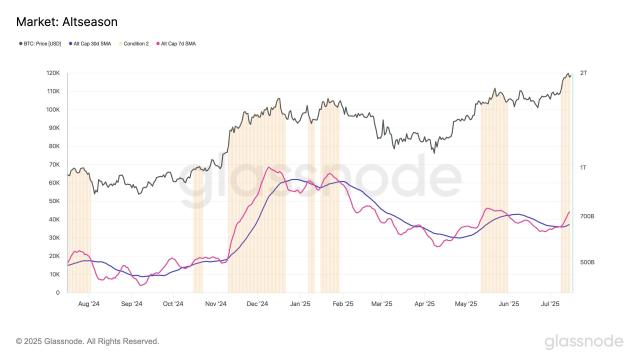Chainfeeds Briefing:
The three legislative proposals focus on different aspects, but they all point to a common theme - "Compliance".
Article Source:
https://www.techflowpost.com/article/detail_27042.html
Article Author:
TechFlow
Perspective:
TechFlow: In July 2025, the U.S. House of Representatives focused on the crypto industry for the first time, launching a week-long Crypto Week to review three key bills: the GENIUS Stablecoin Act, the CLARITY Digital Asset Classification Act, and the Anti-CBDC Act. These bills respectively focus on stablecoin regulatory compliance, crypto asset classification, and restrictions on government digital currency powers, all aimed at establishing clear legal boundaries for the crypto market. On July 15, U.S. time, the GENIUS and CLARITY bills were temporarily suspended from entering formal debate due to opposition from some Republican lawmakers. Trump subsequently personally intervened to coordinate and expressed support for continuing the process, highlighting that crypto legislation has become a political issue. This legislative progress could inject a powerful catalyst into the market. If successful, it will mark a structural turning point in U.S. crypto regulatory environment, potentially fundamentally changing the development landscape of stablecoins, exchanges, DeFi, and privacy assets. The GENIUS bill focuses on stablecoins, proposing 1:1 USD or U.S. Treasury reserve, federal issuer regulation, and mandatory audit systems to provide market compliance and prevent a Terra-like collapse. If passed, it will not only boost market share for mainstream stablecoins like USDC and USDT but also promote DeFi protocols like Aave and Curve that rely on stablecoin liquidity, and attract traditional giants like banks and e-commerce to integrate stablecoin payment systems. The CLARITY bill attempts to clarify the classification of digital assets as commodities or securities, ending the long-standing regulatory overlap between SEC and CFTC, and providing liability exemptions for mature blockchain developers to lower innovation barriers. Once implemented, it will provide clear compliance paths for platforms like Coinbase and Uniswap, unleash developer creativity, and potentially trigger the next wave of DeFi, Web3, and Non-Fungible Token application ecosystems. The core of both bills is to protect innovation within a compliance framework and open doors to traditional finance and sovereign systems. Unlike the first two bills focusing on mainstreaming the crypto industry, the Anti-CBDC bill fundamentally denies the legality of central bank digital currencies (CBDC), prohibiting the Federal Reserve from issuing any form of digital dollar. Supporters argue that CBDC essentially threatens user financial freedom and goes against decentralization principles. If passed, it will politically establish the U.S. stance of supporting Bitcoin and opposing state-level monitored currencies, further reinforcing BTC's digital gold positioning. Simultaneously, the bill will spark user interest in financial privacy, promote privacy coins like Monero and Zcash, and create development space for anonymous trading technologies like Tornado Cash. Against the backdrop of most countries advancing CBDC, the U.S. becoming a haven for decentralized assets could attract more developers and capital, providing long-term strategic advantages for its crypto market position and potentially inspiring a global Web3 privacy innovation wave.
Content Source








